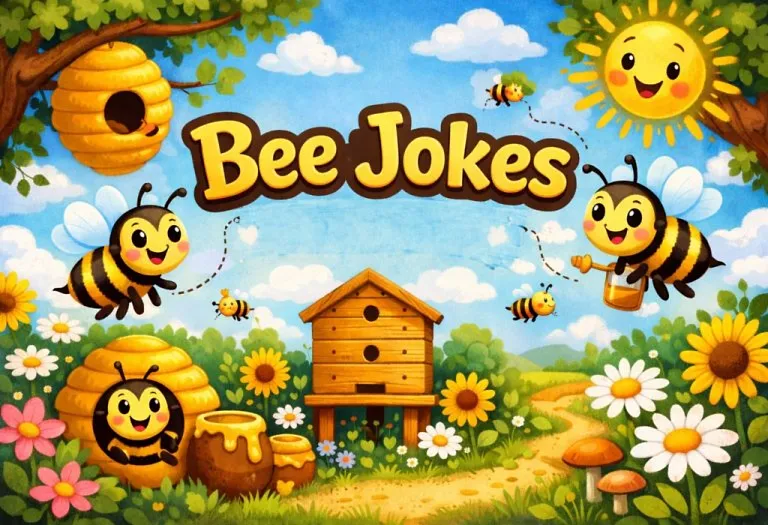Your 26-Week-Old Baby – Development, Milestones & Care

Time flies rather quickly, doesn’t it? Your baby has already reached the six-month mark, and you must notice signs of development. He would be scurrying across the floor, absorbing the environment around them at an incredible pace. For your 26-week-old infant, we know that, as parents, you want to track important milestones and development that will occur this week and in the coming weeks. What are you waiting for then? Scroll and learn about your baby’s development at week 26!
Your 26-Week-Old Baby’s Development
At 26 weeks old, your baby is rapidly growing and changing, with each day bringing new milestones and discoveries. This period is filled with exciting developments in their physical abilities, cognitive skills, and social interactions. Here’s what you can expect and how to support your baby’s growth.
- Increased Motor Skill: As your baby enters the 26th week, you can expect them to start flexing their tiny muscles. Their body will train them to begin getting them to walk upright.
- Attention to voices: The part of the brain receptive to sounds will become active during this time. This is because it is developing quickly, and you can expect a marked increase in your baby’s sense of hearing (2).
- Teething: During this time, their milk teeth will be sprouting out, which is a sign that they can start having solid food (6).
[Also Read: 6 Months Old Baby Development]
Your Twenty-Six-Week-Old Baby’s Milestones
At 26 weeks old, your baby is becoming more curious and interactive. Here are a few milestones your baby might reach at this stage:
- You can expect your baby to get a little agile with their fingers.
- Some of you might be working mommies and may have employed a caretaker. Watching your baby respond to the caretaker so well might hurt because you may feel you don’t have time to bond with your baby. However, they can clearly distinguish between parents and caregivers, meaning they’ll always want to be in your arms at the end of the day.
- A defining feature during this time is that your baby would show signs of independence and want to explore and take in the surroundings, be it the living room or the amusement park.
- As their hearing gets better, they are likely to start doing their best to imitate some of the voices that they hear. Though their speech-making capabilities might be limited, you can expect them to start making babbling sounds. These are usually repeating consonants, and this is when you can expect your little baby to say their first words, ‘Mama’ or ‘Dada’. Please note that even though their vocabulary is non-existent for the most part, you can still decipher what they are saying with relative ease.
- Their sense of hearing develops rapidly, and they will react instantaneously to any unusual sounds.
- Your baby may even start sitting without support for a few seconds or a few minutes.
[Also Read: 6 Months Old Baby Milestones]
Feeding
The 26th week is a gateway to your baby’s solid food (okay, semi-solids, initially). This is the transition period in which the digestive system is still adapting to new foods as opposed to breast milk. Thus, if you see undigested pieces of food in their poop, there needn’t be any cause for alarm. You may see a rainbow of colours during this time. Your infant may also have bouts of constipation during this time. Again, this is due to the transition that is taking place within their digestive system. You can remedy this situation by introducing fibre-rich foods such as papaya, prune juice, carrots, and spinach into their diet (5).
You can also start introducing water into your baby’s diet. Please make sure that you boil water before you give it to your baby, as their immune systems are still far from developed. You can make them use sippy cups so there is minimal spillage. If your little one is still not eating solid food, don’t be disheartened; they will do it sooner or later. Avoid force-feeding them, as they still have the tongue-thrust reflex.
[Also Read: 6 Months Old Baby Food]
Sleeping
While some 26-week-old babies sleep for longer durations, others may not be so lucky. Disturbed sleep could be due to factors such as teething and night feedings. Breastfeeding your infant at least once during nighttime is within the realm of possibility. Studies have shown that at least 78% of babies still get up at night during this time.
[Also Read: 6 Months Old Baby Sleep]
Tips to Take Care of Your 26-Week-Old Baby
Here’s what you can do to take care of your little one:
- Your baby has reached an age where they will want to explore their surroundings independently, so you can expect a few bruises if you aren’t careful. Babyproof the house or areas where you will let your baby loose by taping up sharp edges to minimise damage.
- This is when your baby is teething, so make sure that you have plenty of objects around that they can put in their mouths. Ensure there aren’t any choking hazards that may cause an incident. You may also need to clean your baby’s toys to sanitise them regularly.
- If they use their left hand often, avoid trying to encourage them to use their right. It will inhibit their dexterity. In addition, there is no proof that they will be right or left-handed until they are 2-3 years old.
- Babies can drown easily. Even 4-5 centimetres of water can cause a fatal accident, so be vigilant during bath time if you are using a tub.
- A baby at this age can suffer from separation anxiety, which is a passing phase. Feel free to give them attention without the fear of having them turn clingy during their later years.
[Also Read: 6 Months Old Baby Care]
Test and Vaccinations
Some of the tests and vaccinations that need to be done during this time include (4):
- DTaP and Hib
- Final Hepatitis B dosage between now and age 18 months.
- Influenza vaccine
- Tuberculosis is an epidemic that can be fatal for infants. If you have anyone in your immediate family who has tuberculosis, make sure you get your baby tested.
- You can visit the dentist for a dental check-up, as many young children are prone to cavities.
- You can always get a lead screening test to be on the safe side. This is normally done to determine whether the person has consumed any poisonous substances.
Games and Activities
Here are some games and activities you can try to keep your little one engaged:
- Story Telling: Who doesn’t love a good story? Infants are very receptive to verbal information. This makes for an opportune moment where you can start by telling stories at night. You can use voice modulation to stress the part of the story to get their attention (1).
- Use Musical Objects: You can stock up on musical toys and use one at a time to keep your baby engaged. Shake the toys from different sides to develop your baby’s sense of hearing and to help him understand where the sound is coming from.
- Sing Funny Songs: Sing funny songs to your baby when changing their clothes or cleaning them up and see how they react. This activity will strengthen your bond with your baby, improve his sense of hearing, and help him learn new words. You can even encourage him to sing along. Your little one will babble to communicate and sing with you.
- Ball Chasing: Find a ball or toy they have a special interest in and place it on the other side of the room. Make him go from one side of the room to the other. This will help develop their leg muscles and speed up the process of walking.
- Playing With Blocks: This activity can help improve his dexterity when dealing with relatively small objects. Make sure that the blocks aren’t too small to become a choking hazard.
- Socialise: It’s never too early to take your child out and get them to mingle with the other kids. Invite the neighbouring ladies or friends with kids around the same age to let your child observe and interact with other kids.
[Also Read: 6 Months Old Baby Games and Activities]
Products That Your 26-Week-Old Baby Need
As your baby reaches 26 weeks, their needs and activities change significantly. Ensuring you have the right products can make this transition smoother and safer for you and your baby. Here are some essential items to consider:
- No-Slip Bath Mat: As your baby begins to use the big tub, a textured bath mat is essential to prevent slipping and ensure bath time is safe and enjoyable.
- Spout Cover: A soft, cushioned cover is more than just a bath accessory. It’s a guardian that protects your baby from accidental bumps and injuries during bath time, giving you peace of mind.
- Diaper Pail: With the introduction of solid foods, diaper changes can become a lot smellier. An odour-blocking diaper pail can help manage unpleasant smells and keep your nursery fresh.
When to Consult a Doctor?
Consult a doctor in case of the following:
- If your infant develops a very high fever without any signs of stopping due to teething, take them to a paediatrician at the earliest.
- If they are unresponsive to sounds during this time, it may be a cause for concern. Take them to a speech-language pathologist who can conduct a hearing test with the help of an audiologist.
- If your baby looks malnourished, you may need to take them to the doctor.
FAQs
1. How can I support my 26-week-old baby’s development and learning?
You can foster your 26-week-old baby’s development through plenty of interactive playtime and exploration. Offer a variety of toys that encourage reaching, grasping, and exploring different textures. Spend time on the floor with your baby, providing opportunities for tummy time, which helps strengthen their muscles and prepare them for crawling (3).
2. How can I encourage sensory development in my 26-week-old baby?
Sensory play is essential for your baby’s development at this age. You can stimulate their senses by playing with different textures, such as soft fabrics, crinkly paper, or smooth surfaces. Providing toys with various sounds, colours, and shapes can also engage their senses.
3. How can I establish a bedtime routine for my 26-week-old baby?
Creating a consistent bedtime routine can signal your baby that it’s time to wind down and prepare for sleep. Start with calming activities such as a warm bath, gentle massage, or quiet storytime. Dim the lights in the evening to promote melatonin production, the sleep hormone. Aim for a regular bedtime each night, and keep the routine consistent to help your baby establish healthy sleep habits.
Each baby develops at their own pace. So, don’t be alarmed if your baby is not doing those mentioned above. They’ll get there eventually! Until then, enjoy every moment with your baby and make the most of this time with your precious one!
References/Resources:
1. Important Milestones: Your Baby By Six Months; Centers for Disease Control and Prevention; https://www.cdc.gov/ncbddd/actearly/milestones/milestones-6mo.html
2. Your baby’s developmental milestones at 6 months; UNICEF; https://www.unicef.org/parenting/child-development/your-babys-developmental-milestones-6-months#brain-development
3. Developmental Milestones: 0 to 6 Months; Nationwide Children’s; https://www.nationwidechildrens.org/family-resources-education/health-wellness-and-safety-resources/helping-hands/developmental-milestones-0-to-6-months
4. Checkup Checklist: 6 Months Old; American Academy of Pediatrics; https://www.healthychildren.org/English/ages-stages/Your-Childs-Checkups/Pages/Your-Checkup-Checklist-6-months-old.aspx
5. Child Development Guide & Milestones: 4 to 6 Months Baby; CHOC; https://www.choc.org/primary-care/ages-stages/4-to-6-months/
6. 6 month developmental milestones; NHS; https://www.cambspborochildrenshealth.nhs.uk/child-development-and-growing-up/milestones/6-months/
Previous Week: 25 Weeks Old Baby
Next Week: 27 Weeks Old Baby
Was This Article Helpful?
Parenting is a huge responsibility, for you as a caregiver, but also for us as a parenting content platform. We understand that and take our responsibility of creating credible content seriously. FirstCry Parenting articles are written and published only after extensive research using factually sound references to deliver quality content that is accurate, validated by experts, and completely reliable. To understand how we go about creating content that is credible, read our editorial policy here.








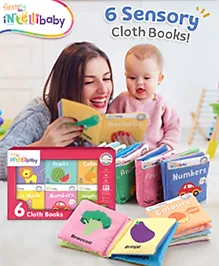
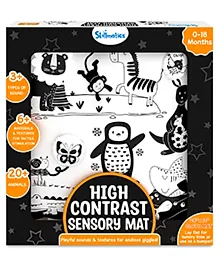
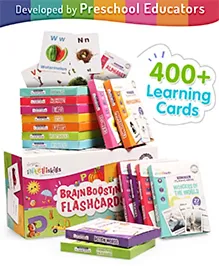
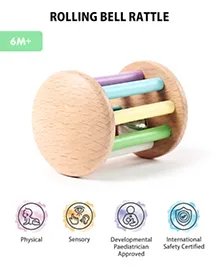
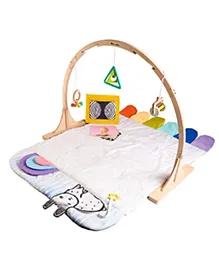
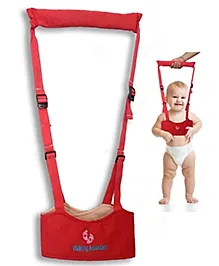
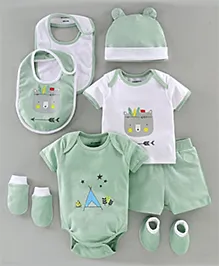
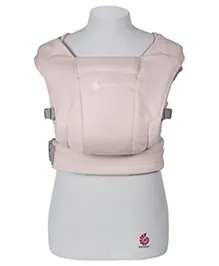
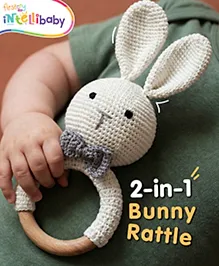
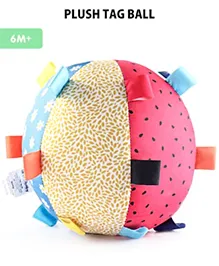

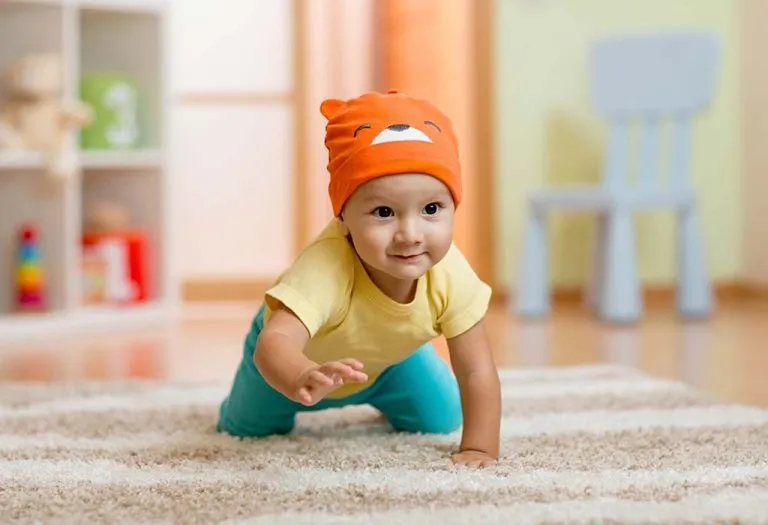

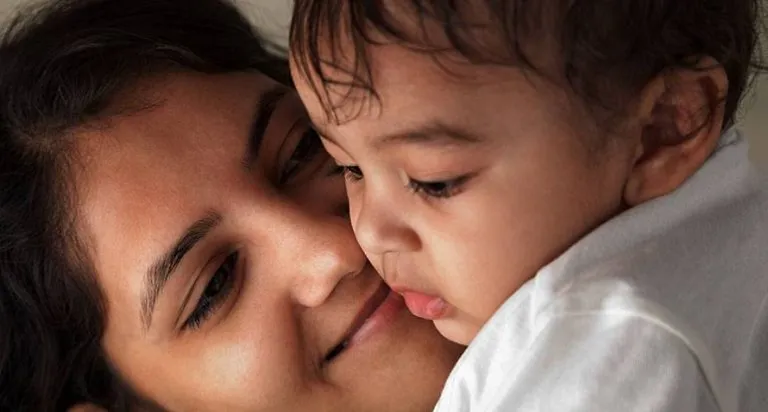
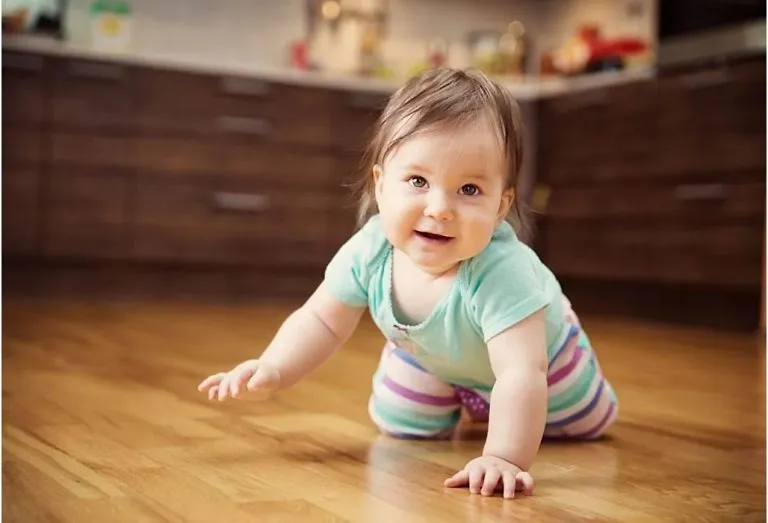

.svg)











